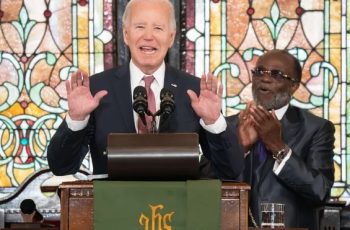In a unanimous ruling applicable to all states, the Supreme Court of the United States has overruled the Colorado decision to kick Trump off the ballot. Further, it determined that Congress, not the states, is responsible for enforcing Section 3 of the Fourteenth Amendment, the clause under which Colorado tried to remove Trump.
That clause is the “Insurrection Clause.” Passed in the aftermath of the Civil War, it provides, “No person shall be a Senator or Representative in Congress, or elector of President and Vice-President, or hold any office, civil or military, under the United States, or under any State, who, having previously taken an oath, as a member of Congress, or as an officer of the United States, or as a member of any State legislature, or as an executive or judicial officer of any State, to support the Constitution of the United States, shall have engaged in insurrection or rebellion against the same, or given aid or comfort to the enemies thereof. But Congress may by a vote of two-thirds of each House, remove such disability.”
States removing Trump from the ballot, such as Colorado, argued that the events on January 6, 2021, were an “insurrection” and that Trump was involved to a degree that meant he had “engaged in insurrection” against the United States, making him ineligible to run for President. SCOTUS disagreed with the states’ contention that they, not Congress, were responsible for enforcing that clause.
Reversing Colorado’s decision, SCOTUS provided, “A group of Colorado voters contends that Section 3 of the Fourteenth Amendment to the Constitution prohibits former President Donald J. Trump, who seeks the Presidential nomination of the Republican Party in this year’s election, from becoming President again. The Colorado Supreme Court agreed with that contention. It ordered the Colorado secretary of state to exclude the former President from the Republican primary ballot in the State and to disregard any write-in votes that Colorado voters might cast for him. Former President Trump challenges that decision on several grounds. Because the Constitution makes Congress, rather than the States, responsible for enforcing Section 3 against federal officeholders and candidates, we reverse.”
Later in the opinion, explaining why Congress is responsible instead of the states, SCOTUS provided, “The Constitution empowers Congress to prescribe how those determinations should be made. The relevant provision is Section 5, which enables Congress, subject of course to judicial review, to pass “appropriate legislation” to “enforce” the Fourteenth Amendment . . . Or as Senator Howard put it at the time the Amendment was framed, Section 5 ‘casts upon Congress the responsibility of seeing to it, for the future, that all the sections of the amendment are carried out in good faith.’”
It then added, shortly afterward, “This case raises the question whether the States, in addition to Congress, may also enforce Section 3. We conclude that States may disqualify persons holding or attempting to hold state office. But States have no power under the Constitution to enforce Section 3 with respect to federal offices, especially the Presidency.”
Explaining that the ruling is unanimous, the per curiam ruling concluded by noting, “All nine Members of the Court agree with that result. Our colleagues writing separately further agree with many of the reasons this opinion provides for reaching it. See post, Part I (joint opinion of SOTOMAYOR, KAGAN, and JACKSON, JJ.); see also post, p. 1 (opinion of BARRETT, J.). So far as we can tell, they object only to our taking into account the distinctive way Section 3 works and the fact that Section 5 vests in Congress the power to enforce it. These are not the only reasons the States lack power to enforce this particular constitutional provision with respect to federal offices. But they are important ones, and it is the combination of all the reasons set forth in this opinion—not, as some of our colleagues would have it, just one particular rationale—that resolves this case. In our view, each of these reasons is necessary to provide a complete explanation for the judgment the Court unanimously reaches.”
Trump responded to the SCOTUS decision in a Truth Social post, writing, “BIG WIN FOR AMERICA!!!” That came alongside the cheers of numerous conservative commentators and politicians on social media, particularly Elon Musk’s X.




